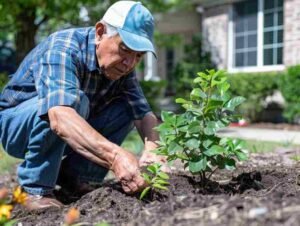Gardening is a rewarding hobby that connects us with nature, provides fresh produce, and beautifies our surroundings. Whether you’re a beginner or an experienced gardener, understanding the right tools, techniques, and best practices can make all the difference. In this article, we’ll explore essential gardening topics, from soil preparation to plant care, while briefly mentioning a helpful tool like the Cobra Head weeder for efficient gardening.
Essential Gardening Tools
Having the right tools can make gardening easier and more enjoyable. Here are some must-have items for every gardener.
Hand Trowel and Fork
A hand trowel is perfect for digging small holes for planting, while a hand fork helps loosen soil and remove weeds. These tools are indispensable for container gardening and small beds.
Pruning Shears
Sharp pruning shears are crucial for trimming plants, cutting back dead growth, and harvesting vegetables. Keeping them clean and well-maintained ensures precise cuts and prevents disease spread.
Garden Hoe
A sturdy garden hoe helps break up soil, remove weeds, and create furrows for planting seeds. Different hoes serve different purposes, so choose one that fits your gardening style.
Watering Can or Hose
Proper hydration is key to plant health. A watering can is great for small gardens, while a hose with an adjustable nozzle is ideal for larger areas.
Preparing Your Soil
Healthy soil is the foundation of a thriving garden. Here’s how to ensure your soil is ready for planting.
Testing Soil Quality
Before planting, test your soil’s pH and nutrient levels. Kits are available at garden centers, or you can send samples to a lab. Adjustments can then be made with compost or fertilizers.
Adding Organic Matter
Compost, manure, and leaf mold improve soil structure, drainage, and fertility. Work organic matter into the top few inches of soil before planting.
Mulching for Moisture Retention
Mulch helps retain moisture, suppress weeds, and regulate soil temperature. Organic mulches like straw or wood chips also break down over time, enriching the soil.
Choosing the Right Plants
Selecting plants suited to your climate and soil ensures a successful garden.
Understanding Hardiness Zones
The USDA Hardiness Zone Map helps determine which plants thrive in your region. Choose plants that match your zone for better growth and resilience.
Annuals vs. Perennials
Annuals complete their life cycle in one season, while perennials return year after year. Mixing both ensures continuous color and harvests.
Companion Planting
Some plants grow better together. For example, tomatoes benefit from basil, which repels pests. Research companion planting to maximize garden health.
Maintaining Your Garden
Regular care keeps plants healthy and productive.
Weeding Efficiently
Weeds compete with plants for nutrients and water. Hand-pulling is effective, but tools like the Cobra Head (https://www.cobrahead.com/) make the job easier with its ergonomic design.
Pest Control
Natural methods like neem oil, insecticidal soap, and introducing beneficial insects help manage pests without harsh chemicals.
Seasonal Care
Different seasons require different tasks—pruning in winter, planting in spring, watering in summer, and harvesting in fall. Adjust care routines accordingly.
Conclusion
Gardening is a fulfilling activity that offers numerous benefits. With the right tools, soil preparation, plant selection, and maintenance, anyone can cultivate a beautiful and productive garden. Whether you’re pulling weeds with a Cobra Head weeder or harvesting fresh vegetables, the joy of gardening is unmatched. Happy gardening!







